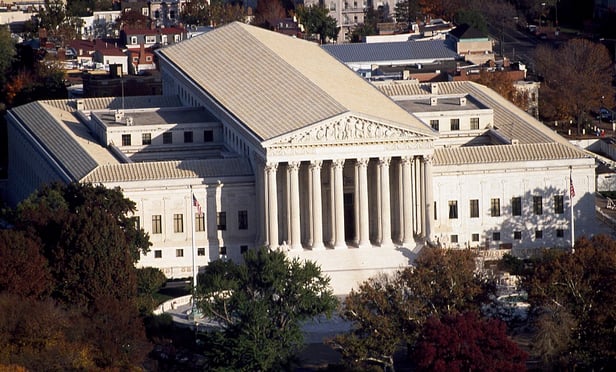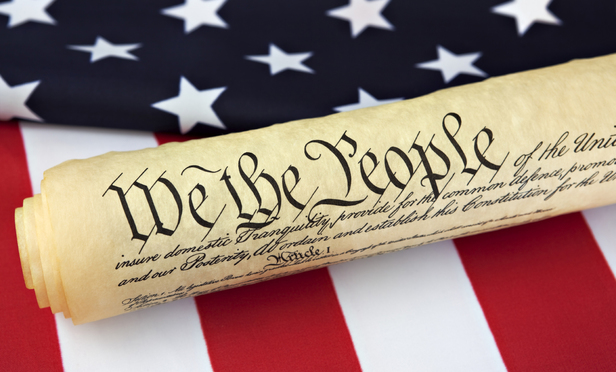Stephen A. Miller

January 30, 2016 | The Legal Intelligencer
US Supreme Court to Consider RICO's International ReachWe live in an increasingly interconnected world, and the boundaries of traditional nation-states are often blurred by growing globalization in business. For that reason, the U.S. Supreme Court is set to return this term to a hot-button issue—the extraterritorial application of U.S. law—in the context of the Racketeer Influenced and Corrupt Organizations (RICO) Act. Once a tool reserved for disrupting organized-crime families, RICO has evolved into a powerful civil and criminal instrument of business regulation. The court is scheduled to address this spring in European Community v. RJR Nabisco, No. 15-138, whether RICO may be applied to conduct occurring outside the United States.
By Stephen A. Miller and Stephen S. Kempa
4 minute read

January 11, 2016 | The Legal Intelligencer
US Supreme Court Addresses 'Attenuating' CircumstancesThe Fourth Amendment provides a consistent stream of litigation to the U.S. Supreme Court. This term is no exception.
By Stephen A. Miller and Pamela Dorian
5 minute read

January 09, 2016 | The Legal Intelligencer
US Supreme Court Addresses 'Attenuating' CircumstancesThe Fourth Amendment provides a consistent stream of litigation to the U.S. Supreme Court. This term is no exception.
By Stephen A. Miller and Pamela Dorian
5 minute read

November 20, 2015 | The Legal Intelligencer
US Supreme Court Revisits Class-Action Suits in 'Campbell-Ewald'Must a plaintiff accept a defendant's surrender? That is the question posed in Campbell-Ewald v. Gomez, No. 14-857—indeed, expressly posed by an exasperated Chief Justice John Roberts Jr. at oral argument, when he upbraided the lead plaintiffs lawyer: "You won't take 'yes' for an answer." In this case, the U.S. Supreme Court will determine whether a defendant's offer to provide complete relief to the named representative of a proposed class action moots both the representative's individual claim and the claim of the proposed class. This case may significantly impact the landscape of future class-action litigation by determining whether a defendant may stifle putative class claims by "picking-off" the named plaintiff.
By Stephen A. Miller and Nicholas Karwacki
7 minute read

November 19, 2015 | The Legal Intelligencer
US Supreme Court Revisits Class-Action Suits in 'Campbell-Ewald'Must a plaintiff accept a defendant's surrender? That is the question posed in Campbell-Ewald v. Gomez, No. 14-857—indeed, expressly posed by an exasperated Chief Justice John Roberts Jr. at oral argument, when he upbraided the lead plaintiffs lawyer: "You won't take 'yes' for an answer." In this case, the U.S. Supreme Court will determine whether a defendant's offer to provide complete relief to the named representative of a proposed class action moots both the representative's individual claim and the claim of the proposed class. This case may significantly impact the landscape of future class-action litigation by determining whether a defendant may stifle putative class claims by "picking-off" the named plaintiff.
By Stephen A. Miller and Nicholas Karwacki
7 minute read

November 12, 2015 | The Legal Intelligencer
US Supreme Court Explores Standing Doctrine in 'Spokeo'Article III of the Constitution is the gatekeeper of the federal courts. One of Article III's limitations on federal jurisdiction is the standing doctrine—in short, the requirement that any litigant be able to demonstrate that he or she has been injured in some way. Under longstanding U.S. Supreme Court precedent, a plaintiff must have suffered a harm that is actual, distinct and concrete in order to have standing. An attenuated or hypothetical injury is insufficient and does not constitute an "injury-in-fact."
By Stephen A. Miller and Leigh Ann Benson
5 minute read

November 11, 2015 | The Legal Intelligencer
US Supreme Court Explores Standing Doctrine in 'Spokeo'Article III of the Constitution is the gatekeeper of the federal courts. One of Article III's limitations on federal jurisdiction is the standing doctrine—in short, the requirement that any litigant be able to demonstrate that he or she has been injured in some way. Under longstanding U.S. Supreme Court precedent, a plaintiff must have suffered a harm that is actual, distinct and concrete in order to have standing. An attenuated or hypothetical injury is insufficient and does not constitute an "injury-in-fact."
By Stephen A. Miller and Leigh Ann Benson
5 minute read

October 08, 2015 | The Legal Intelligencer
Preview of the US Supreme Court's October Term in 2015The U.S. Supreme Court gets back to work this month. Each year, the justices seemingly fight hard with each other through late June and then, like boxers, "retire to their corners" over the summer to regroup for another round of fighting. Here are some of the cases that will occupy the justices' attention in the coming months:
By Stephen A. Miller
4 minute read

June 10, 2015 | The Legal Intelligencer
In Same-Sex Marriage Case, Justices Face Complex Social, Legal IssuesLater this month, the U.S. Supreme Court will rule on the constitutionality of state laws prohibiting same-sex marriage. The consolidated action, captioned as Obergefell v. Hodges, Docket No. 14-556, has sparked widespread media attention, protests, and the filing of 126 amicus curiae briefs. The court will address two questions: (1) whether state laws prohibiting same-sex marriage violate the equal protection or due process clauses of the 14th Amendment; and (2) whether states have the power to refuse to recognize same-sex marriages lawfully performed in other states.
By Stephen A. Miller and Arthur P. Fritzinger
6 minute read

June 09, 2015 | The Legal Intelligencer
In Same-Sex Marriage Case, Justices Face Complex Social, Legal IssuesLater this month, the U.S. Supreme Court will rule on the constitutionality of state laws prohibiting same-sex marriage. The consolidated action, captioned as , Docket No. 14-556, has sparked widespread media attention, protests, and the filing of 126 amicus curiae briefs. The court will address two questions: (1) whether state laws prohibiting same-sex marriage violate the equal protection or due process clauses of the 14th Amendment; and (2) whether states have the power to refuse to recognize same-sex marriages lawfully performed in other states.
By Stephen A. Miller and Arthur P. Fritzinger
6 minute read
Trending Stories
- 1'Largest Retail Data Breach in History'? Hot Topic and Affiliated Brands Sued for Alleged Failure to Prevent Data Breach Linked to Snowflake Software
- 2Former President of New York State Bar, and the New York Bar Foundation, Dies As He Entered 70th Year as Attorney
- 3Legal Advocates in Uproar Upon Release of Footage Showing CO's Beat Black Inmate Before His Death
- 4Longtime Baker & Hostetler Partner, Former White House Counsel David Rivkin Dies at 68
- 5Court System Seeks Public Comment on E-Filing for Annual Report
More from ALM
- Scan In Progress: Litigators Leverage AI to Screen Prospective Jurors 1 minute read
- Legal Speak at General Counsel Conference East 2024: Match Group's Katie Dugan & Herrick's Carol Goodman 1 minute read
- Legal Speak at General Counsel Conference East 2024: Eric Wall, Executive VP, Syllo 1 minute read



